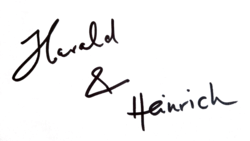This day now marks the end of the traditions surrounding the Christmas season. The 2nd of February, Mary’s Purification. The name goes back to the Old Testament, which states that a woman was considered unclean for forty days after giving birth. So was Mary after the birth of Jesus. Forty days after 25 December, she was considered clean again. In Christian South Tyrol there are a number of traditions and customs surrounding this day. And this is how the far more congenial name for today’s day came about, namely Candlemas.
For farmers, 2 February is a very special day: the farming year begins. Traditionally, the last Christmas tent is eaten on this day and the “Krippele” and the Christmas tree are cleared away. The time of cleaning and tidying begins in the house and on the farm and space is made for the new.
Consecrated candles from Candlemas
The name Candlemas has its origins in the consecration of candles, which is still an integral part of South Tyrolean customs today. On 2 February, the entire supply of candles and wax for the coming year is consecrated. These consecrated candles accompany the South Tyroleans at many important events throughout the year, for example they are lit at baptisms and other festivities at the Easter candle. The consecrated candles are also said to protect against storms.
Wax sticks that bring luck and health
Another very special candle is the Wachsstöckl. It is made of long, thin candles that are artfully rolled up. After the consecration at Candlemas, it was supposed to protect against illness and misfortune. The unrolled part is lit at a time, so they had to be turned over again and again and put up anew.
The Schlenggltog – A special day for the servants
The 2nd of February, Candlemas, was also a special day for the maids and servants. Usually they changed their service on this day. They received their annual wages and had a few days off. Until 5 February, they could “schlenggln” around.
On this day, the farmers’ wives prepared a special dish for employees who had committed themselves to the farm for a year. The so-called “Türnägel” or “Kniakiachl” – round baked doughnuts filled with cranberry jam – symbolised that the maids and farmhands were “nailed” to the farm.
You could take up a few of these old traditions today. How about a little space and order for something new?


